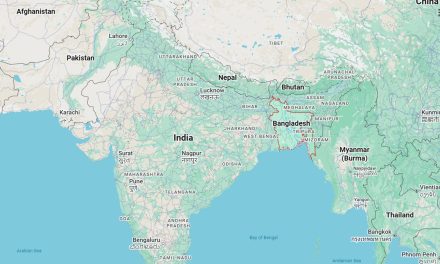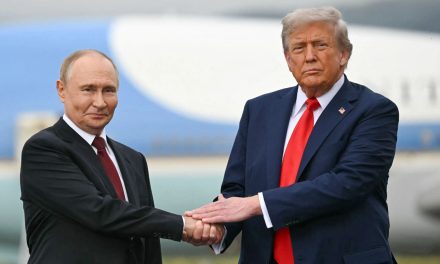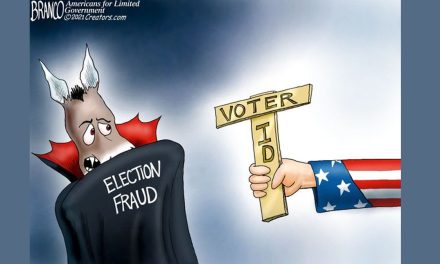
Brexit: Theresa May Files Divorce Paperwork
The whole world was talking about Brexit in the months leading up to the now-famous June 2016 vote. We haven’t heard much about it since.
This week, British Prime Minister Theresa May filed the official paperwork marking the UK’s decision to leave the European Union.
“After nine months the UK has delivered,” tweeted European Council President Donald Tusk, who accepted May’s Article 50 letter on Wednesday.
May, who originally opposed the idea of leaving the EU, has two years to negotiate the terms of the separation. In the upcoming months, the 60-year-old prime minister will face grueling talks with 27 EU states on trade, finance, security, and other complicated issues.
“Today the government acts on the democratic will of the British people,” said May. “This is a historic moment from which there can be no turning back. The United Kingdom is leaving the European Union.”
Britain is the world’s fifth largest economy. Its decision to leave is a serious loss for the EU, which is already struggling to maintain its identity amidst the refugee crisis.
“What makes the looming confrontation so dangerous is that both sides stand to lose economically in the event of a breakdown,” reports the New York Times.
There is “no reason to pretend this is a happy day,” said Tusk. Britain’s plans to leave the Union will only leave the remaining states “more determined and more united,” he added. “We already miss you.”
Germany’s Foreign Ministry said the UK would remain a “close partner and friend of the Union,” but that “being a close friend is not the same as being part of the family.”
European leaders don’t want to punish the UK for leaving, but with populist, anti-EU parties on the rise in many states, they can’t give London overly generous terms that could convince other states to break away.
May’s 6-page letter sets a polite tone for future talks and outlines the 12 key points she had previously established as her goals for the separation. The letter stresses that her people hope to remain “committed partners and allies to our friends across the continent.”
“May has promised to seek the greatest possible access to European markets but said Britain will aim to establish its own free trade deals with countries beyond Europe, and impose limits on immigration from the continent,” reports Newsmax.
May has prioritized immigration control over membership in the EU’s single market, which somewhat limits her negotiating leverage.
“When I sit around the negotiating table in the months ahead, I will represent every person in the whole United Kingdom,” said May on Wednesday. “We are one great union of people and nations with a proud history and a bright future. And, now that the decision has been made to leave the EU, it is time to come together.”
Brexit Secretary David Davis, the man responsible for Britain’s side in the negotiations, refers to the upcoming talks as “the most complicated negotiation in modern times, maybe the most complicated negotiation of all time.”
The final deal will have to be approved by over 30 legislatures throughout Europe and can be vetoed by the European Parliament. Some officials are concerned that two years isn’t enough time to complete the negotiations.
“It was you, the British, who decided to leave, not us who wanted you to go,” said a senior EU diplomat. “The trading relationship is going to be the most difficult bit to solve – I don’t see how that will be done in that time frame.”
There are still many questions to answer, such as:
• Will British banks be able to serve continental clients?
• Will exporters maintain tariff-free access to the single market?
• What will happen to the rights of the 3 million EU citizens living in Britain and the 1 million Britons living in Europe?
Other major factors include the upcoming elections in Germany and France, not to mention the internal divisions that formed within the United Kingdom following the Brexit vote.
Take Scotland, for example, where the majority of voters wished to remain in the EU. Scotland is now seeking its own independence in the hopes that it can rejoin the EU. The Scottish Parliament voted Tuesday to support First Minister Nicola Sturgeon’s plan to hold a referendum on independence within the next two years.
Scotland must not be “taken down a path that we do not want to go down without a choice,” insists Sturgeon.
Editor’s note: While many complain, it does seem the people of the U.K. are breathing a sigh of relief that they are no longer under the thumb of the E.U.


























According to one Black Man on YouTube, there is NO 'reverse racism', it's just other races being racist. He then…
Another frank rant, yippee. It wasn't really 'divisive' per se. It was totally distasteful, and definitely NOT family oriented. That…
Short piece of rope with a tall tree
Anyone in anyway responsible for the rape for anyone underaged deserves to be ratted out. I'd "drop a dime" on…
Has anyone ever heard of reverse discrimination? It is just as evilly racist as that other kind.